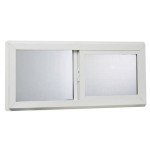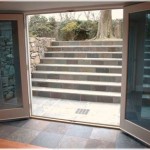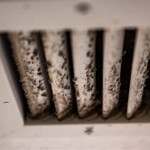What Is A Good Humidity Level For Basement In The Summer
Maintaining a comfortable and healthy environment in your basement, especially during the humid summer months, is crucial. High humidity can lead to various problems, including mold growth, mildew, musty odors, and structural damage. Understanding the ideal humidity level for your basement during summer can help you prevent these issues and ensure a safe and pleasant living space. This article will explore the optimal humidity levels, the potential consequences of high humidity, and practical solutions for maintaining a comfortable environment.
Optimal Humidity Levels for Basements
The ideal humidity level for a basement generally falls between 30% and 50%. This range helps prevent the growth of mold and mildew while maintaining a comfortable environment. High humidity can lead to condensation on surfaces and objects, creating a breeding ground for mold and mildew. Conversely, excessively low humidity can cause dry air, leading to static electricity, skin dryness, and irritation to the respiratory system.
Maintaining a humidity level within this range can be challenging, especially in humid climates. However, there are various strategies to achieve and sustain the optimal level.
Potential Consequences of High Humidity in Basements
High humidity in basements can have significant consequences, impacting both health and property. Some of the most common problems associated with excessive moisture include:
Mold and Mildew Growth
Mold and mildew thrive in humid environments. They can grow on various surfaces, including walls, floors, furniture, and even clothing. In addition to an unpleasant musty odor, mold and mildew can cause respiratory problems, allergies, and other health issues, particularly for individuals with sensitivities.
Structural Damage
Excessive humidity can damage the structural integrity of a basement. Moisture can penetrate wood, causing warping and rotting. This can lead to weakened support beams, floors, and walls, compromising the stability of the entire structure. Furthermore, moisture can also damage insulation, reducing its effectiveness and increasing energy costs.
Musty Odors
High humidity contributes to the development of musty odors in basements. Moisture encourages the growth of bacteria and fungi, which release unpleasant scents that can permeate the air. These odors can be difficult to eliminate and may require professional remediation services.
Other Health Concerns
Beyond mold and mildew, high humidity can create an environment conducive to other health concerns. Dust mites, a common allergen, thrive in humid conditions. Additionally, excessive moisture can exacerbate existing respiratory problems and trigger allergies, particularly in individuals with asthma or other respiratory conditions.
Solutions to Control Humidity Levels in Basements
There are several effective methods to control humidity levels in basements and create a comfortable environment. These solutions encompass both proactive measures to prevent excessive moisture and corrective actions to address existing issues.
Proper Ventilation
Adequate ventilation is essential for maintaining proper humidity levels. Ensure your basement has proper exhaust fans and air vents to allow fresh air circulation. Consider installing a dehumidifier to remove excess moisture from the air. Regular ventilation can help prevent the accumulation of moisture and reduce the risk of mold growth.
Seal Cracks and Openings
Inspect your basement for cracks in the foundation, walls, and floor. Seal any cracks or openings with caulk or cement to prevent moisture from entering. Additionally, check windows and doors for leaks and ensure they are properly sealed.
Control Moisture Sources
Identify and address potential sources of moisture in your basement. This includes leaky pipes, plumbing fixtures, and appliances. Repair any leaks promptly and avoid storing items directly on the floor to allow proper air circulation.
Dehumidifiers
Dehumidifiers are essential for controlling humidity levels, especially in humid climates. They remove moisture from the air, reducing humidity and preventing mold growth. Choose a dehumidifier appropriate for the size of your basement and run it regularly, especially during summer months.
Maintaining a comfortable and healthy environment in your basement during the summer months requires proactive measures to control humidity levels. By understanding the optimal humidity range, recognizing the potential consequences of high humidity, and implementing effective solutions, you can ensure a safe and pleasant living space for yourself and your family.

Hot In Here How To Maintain Ideal Indoor Humidity Summer

Dehumidifier Setting Chart What Should Be Set At

How To Lower Your Basement S Humidity Level

A Guide To Controlling Nc Home Humidity Newcomb And Company

Relative Humidity Chart For Ideal In The House

What Is The Ideal Basement Humidity Level Epp Foundation Repair

Window Condensation And Humidity In Your New Home Pacesetter Homes

The Ideal Humidity Level For Your Basement Reliable Waterproofing

How To Lower Your Basement S Humidity Level

Fighting Basement Humidity In The Summer News And Events For Systems Inc
Related Posts







